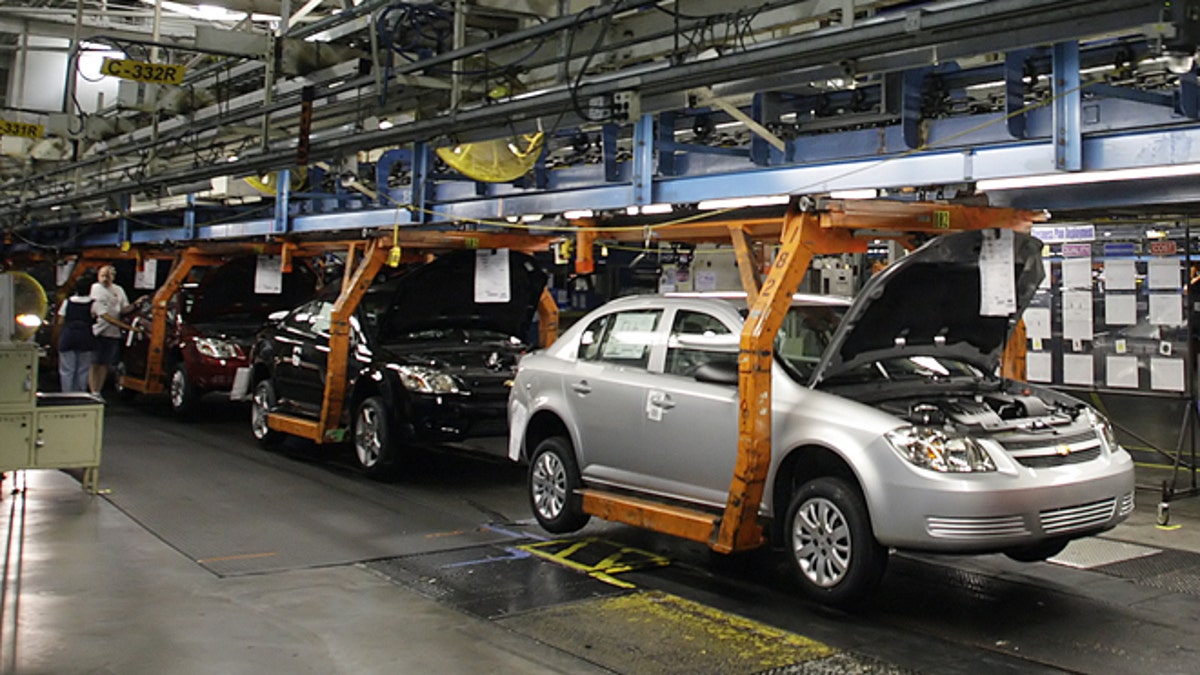
FILE - In this Thursday, Aug. 21, 2008, file photo, the Chevy Cobalt moves on the assembly line at the Lordstown Assembly Plant Thursday Aug. 21, 2008. in Lordstown, Ohio. The U.S. governments auto safety watchdog likely is looking into whether General Motors was slow to report problems that led to a massive small-car recall and 13 deaths. Photo/Ron Schwane, File)
General Motors faced new pressure from a powerful member of Congress to explain why it took nearly a decade to recall 1.6 million vehicles for faulty ignitions linked to 13 deaths, even as the auto maker hired a high-profile lawyer to lead its internal investigation and stepped up warnings to customers.
Late Monday, the House Energy and Commerce Committee said it would launch an investigation into the slow recall and hold hearings.
The committee's chairman, Michigan Republican Fred Upton, was the lead sponsor of the last comprehensive piece of auto safety legislation enacted by Congress, the Tread Act of 2000.
That legislation was a response to a deadly series of accidents involving Ford Motor Co. Explorer sport-utility vehicles equipped with certain Firestone tires. The Tread Act set requirements for auto makers to more quickly report fatal accidents related to safety defects, and directed the U.S. Transportation Department to take steps to improve its ability to analyze data.
"Did the company or regulators miss something that could have flagged these problems sooner? If the answer is yes, we must learn how and why this happened, and then determine whether this system of reporting and analyzing complaints that Congress created to save lives is being implemented and working as the law intended," Upton said in a statement Monday.
Earlier Monday, GM said it is bringing in Anton Valukas, the Chicago lawyer who led the court-ordered investigation of the Lehman Brothers collapse in 2008, to lead the company's own inquiry into the recall. The move is part of a broader effort by GM to persuade consumers, regulators and lawmakers that it is responding rapidly.
GM wants to avoid the kind of costly, damaging scandal that engulfed Toyota Motor Corp. in 2010 after the Japanese auto maker recalled millions of vehicles for problems related to unintended acceleration.
GM initiated a recall on Feb. 13, saying a faulty ignition switch could partially turn off certain vehicles while they were being driven, disabling their air bags. Drivers have since claimed the cars could become difficult to steer when the switch malfunctioned, resulting in accidents.




